MADE A DECISION TO TURN OUR WILL AND OUR LIVES OVER TO THE CARE OF GOD AS WE UNDERSTOOD HIM
It is essential step three is taken immediately, if not sooner. Once the sponsee has come to believe that a power greater themselves can relive their addiction and restore them to sanity, they are directed to Step Three.
Reading on the step
In the Big Book step three (pages 60-64) Step three in the twelve and twelve
(Pages 34-41)
Questions about the step (from your sponsees personal experience and the reading)
- What does the phrase God as we understood God [God] mean?
- What is your concept of God (or a higher power)?
- What does it mean to turn our will and our lives over to the care of God?
- What is the difference between a life run on self-will and a life that follows God’s will, however you understand God?
- How well has self-will served you to this point?
- What is a recent example in your life in exercising self-will rather than following what you believe might be God’s will?
- How can you know Gods God’s will?
- Do you have any reservations about turning your will and your life over to the care of God (as you understand God)? If so what are they?
- What does it mean to make a decision?
In the first step, we overcame our denial and accepted our powerlessness and unmanageability over our lives and over alcohol .We surrendered to win.
Step three in essence is:
I can’t, God can, I think I’ll let God.
The Twelve and Twelve states: The effectiveness of the whole A.A. program will rest upon how well and earnestly we have tried to come to a decision to turn our will and our lives over to the care of God as we understood him. Step Three has to be determined and persistent to be effective. In A.A., we all have had to come up with a higher power, for some just slightly higher and for some, the God of their fathers.
For most of us the only time we thought about God was only in an emergency, the God of 911.
There was an atheist who loved to fish. (an atheist is someone who says their is no God and lives like there is one and the agnostic says there might be a God and lives like there isn’t) He would travel the world to fish in exotic places. One late afternoon, while fishing, the Loch Ness monster emerged from the depths and threatened to destroy him. The atheist yells up to the heavens and pleads for help. The heavens open up and a voice is heard saying I thought you didn’t believe in me? The now believer calls back and says, Lord give me a break, two minutes ago I didn’t believe in the Loch Ness monster either.”
Maybe the atheist cannot find God for the same reason a thief cannot find a policeman.
Some of us had the belief in God that we had developed as children and never changed. Still others mouthed the words not giving much thought to whether we believed them or not.
Some had no concept of God at all. For all intents and purposes, they were the God of their own understanding, if they could only manage well. Step three asks us to examine at the deepest and at the most profound level what our concept of God or even no God really was.
Step Three asks us to examine our concept of God and to work with it. We can change it if we find it necessary and desirable.
Self will run riot
A riot is a form of disorder, characterized by lashing out in a sudden and intense rash of violence, riots are typically chaotic.
Selfishness – self-centeredness! That, is what we think is the root of our troubles. Driven by a hundred forms of fear, self-delusion, self-seeking and self-pity (in a 1959 Eldorado convertible). We step on the toes of our fellows and they retaliate.
The A.A. big book tells us “So our troubles we think our ARE basically of our own making. They arise out of our selves, and the alcoholic is an extreme example of self will run riot, though he usually doesn’t think so
A wise man once said “Whoso diggeth a pit shall fall therein: and he that rolleth a stone, it will return upon him.” (We think that our troubles are of our own making).
The TWELVE AND TWELVE puts it this way each of us has had his own near fatal encounter with the juggernaut of self-will, and has suffered enough under its weight to be willing to look for something better.
I might not be much, but I am all I think about.
What is that something better?
The A.A. BIG Book tells us ,This is the how and why of it. First of all, we had to stop playing God. It didn’t work. We lived by the adage It’s either my way or the highway and addiction is route one, only the lonely. Since our best thinking got us here we had stop trying to control people places and things, we had to develop humility. Humiliation was all too familiar, but humility that was a horse of a different color. We were beaten down to a state of reasonableness, we became teachable. We had to be convinced that any life run on self will can hardly be a success We did have fun for awhile, but nothing lasting, the fabric of our lives became torn and shallow. The years of unmanageability slowly turned to a quite desperation and for some a wailing lament.
When will I awake? For I will seek it yet again.
Turning our will and our lives over to the care God
A tall order, who am I? My ego has been in charge so long. If I lose myself, how can I find myself?
A quote from Pogo the Louisiana alligator We have met the enemy and he is us.
In steps one and two, we are subordinating our will to God’s will (as you understand God) the divine agenda is a powerful act of humility. It is the cure for grandiosity, to self-will run riot. Our inflated egos often see it as humiliation, trying to hang on to the last vestiges of control.
Humility is accepting our selves as we really are and our proper place in the world.
If we could see ourselves as other people see us we would truly be humble Thomas Merton Trappist monk
If we could see ourselves as other people see us, we would disappear on the spot Cioran, E.M. Philosopher
That if God gave us the power to see ourselves as others see us, it would from many a blunder free us, and foolish notion.” Robert Burns, Poet.
We begin to learn that as we make decisions about the course and actions of our life, we do not make decisions about the results of those actions.
As resentment was like taking poison and expecting someone else to die.
An expectation was a resentment under construction.
We do not buy into the OUTCOME. What we do, we do the next right thing and turn that OUTCOME to our new employer, God. We accept the OUTCOME, whatever or how ever it may be. We have found a new freedom and a new happiness; we can put down our burden of carrying around the world.
Gods will?
I hear tell that the right thing and the hard thing is always the same thing. Some think we are going to be asked to do things we do not want to do. We might be asked to do things to TOO hard for us to do, forgetting how little peace and satisfaction doing it our way got us. After all, maybe we just didn’t want anybody telling us what to do, including God.
Decisions, Decisions
Decision making can be regarded as the mental processes resulting in the selection of a course of action among several alternatives.
We are asked to decide to do something, not to act but to agree to act.
Why lives, instead of life?
Do we turn our entire life over to the care of God? Surely not my sex life, my business life; you know business is business. My family life, my sporting life, my church life, as parents, as spouses, as friends?
If it is just the same to you I would like to hold on to some of them, at least for the time being. Sorry, my friend, it’s ALL our lives.
Knowing Gods will
First you must be open to the idea. Seek and you shall find, knock and it will open unto you. When we try running the show again, we miss the mark. When we are especially resistant is when we are certain about what we want. We have found that if we had gotten certain things that we had wanted it would not have boded well for us On the other hand some things we dreaded turned out well for us. We keep in mind the saying God gives us what we need, not necessarily what we want And God never gives us more than we can handle without away to accomplish it or escape from it.
Some suggestions we have found to be helpful to learn GOD’S will.
1) Regular prayer and meditation
Praying is talking to God, meditation is listening to God. Think of it like a telephone conversation. You speak to God, tell him how good he is, and how you’re going to be good by doing the next right thing ,Then you put in shopping list, and then you tell him you would like to hang with him a little longer but you have a million things to do today but we will talk soon and you have to run, click.
Gee, I wonder why he never talks to me. Be still and get to know God, that’s meditation, listening for God. David E. related a story in a meeting. He was new in the program and was having an animated conversation with God, like one man talks to another. He paused and said to himself, no he was but talking to himself, He then heard a clear still small voice say: I am you, but you are not me.
2) Intuition
One of the twelve promises is that will intuitively know had to handle situations that used to baffle us, a Dudley-ism “I now baffle situations” that used to handle me. I suggest sponsees use the Benjamin Franklin method. On a sheet of paper, draw a vertical line down the center. On one side the pros, on the other, the cons.
Make an informed decision. Yes or no. Then pray to God, asking if the decision is right. If you have clarity of thought and a positive inclination, go with it. If you have stupor of thought and a negative inclination, punt and don’t look back as you have put it into God’s hands.
3) Friends
When you’re trusting in the process God will sometimes speak to you through your friends, in meetings or, in a still small voice. Many times I have heard God talking to me directly through the voice of others as long as I seek him and try to stay in a fit spiritual condition.
4) Readings
5) The steps
When we are unsure about what to do, we turn to the steps, they often contain the needed direction and answers we seek.
We believe that God’s will for us always includes recovery.
It works when we work it.
We have to apply the third step daily, sometimes hourly, sometimes moment to moment. Sometimes we decide to turn it over as often as we decide to take it back. The ego is not easily deflated, and we insist on the illusion of control.
There was an inmate in a mental asylum who had obtained a scalpel. The patient accosted his doctor and put the scalpel to his doctor’s throat and asked his doctor what have you lost? The doctor replied I have lost control. No, the patient replied, you have lost the illusion of control.
We have to accept that we have no control over people, places, and things. We only have control over our own actions and attitudes.
Willing to be willing
Willingness is the key that unlocks the door to step three and faith.
Willingness is like a mustard seed. If it is a good seed it will grow.
Once we have placed the key of willingness in the lock and have the door ever so slightly open, we find that we can always open it some more. Though
Self-will may slam it shut again, as it frequently does, it will always respond the moment we pick up the key of willingness
Turn it over and over and over again.
It means we turn over the results of whatever we are concerned about over to the care of God after we have done the next right thing.
It’s often misinterpreted that we do not have to do anything, just turn it over. We are saved by grace after all that we can do What we turn over are the results of our actions, not the actions themselves. We do try to bring those actions into line with what we believe to be God’s will for us.
We pray only for the knowledge of God’s’ will and the power to carry that out.
The hardest part of turning our will over to the care of God is when we do not get what we want I easy when we are the same page but it is when our will seems opposed to God’s will, that’s when we need acceptance. The Twelve and Twelve suggests a way to find it. In all times of emotional disturbances or indecision, we can pause, ask for quiet , and in the stillness simply say: God grant me the serenity to accept the things I cannot change, courage to change the things I can and the wisdom to know the difference. Thy will not my will be done.
I have come to the understanding that God’s will is always manifest itself when we are in the service of our fellow beings ,and when we are in that service, we are divorced from self-delusion,self-seeking and self-pity and in that moment is that not when we make our conscious contact with our creator who lives from moment to moment. eternity to eternity life everlasting.
What if your sponsee is struggling with this step?
No matter how much I prove and prod,
I cannot quite believe in God;
But oh, I hope to God that He
Unswervingly believes in me.
God’s will is not an itinerary, but an attitude. ~Andrew Dhuse
1) Pray about the step, asking for guidance, courage, and willingness daily.
2) Reread the applicable pages in the basic text.
3) Keep a list of examples of self-will and how they are hurting him, or her.
4) Keep track of the times your sponsee tries to follow God’s will and what it feels like.
5) Return to step 2.
6) Talk with other program members about how they worked the step.
The Big book suggests that it is “very desirable to take this spiritual step with an understanding person It is important your sponsee formally takes it with you.
Ask your sponsee what step three means to them, and how they intend to apply it.
Ask your sponsee if they have made the decision to turn their lives and their will over to the care of God.
If your sponsee has answered yes, they have taken the step. Remind your sponsee that the step is worked daily because we often turn it over and take it back.
Our goal is spiritual progress, not perfection. We are not saints, but surely angels with dirty faces. To conclude the step, have your sponsee recite the third step prayer voicing it without reservation.
“God, I offer myself to Thee to build with me ,and to do with me as Thou wilt. Relieve me of the bondage of self, that I may better do Thy will. Take away my difficulties, that victory over them may bear witness to those I would help of Thy Power, Thy Love, and Thy Way of life. May I do Thy will always?” AMEN
The Third Step prayer is found on page 63 in the Big Book of Alcoholics Anonymous. When your sponsee has finished the prayer, they have concluded Step Three and can now begin Step four (a)


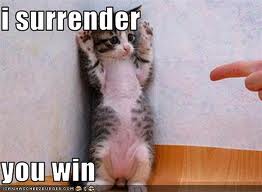





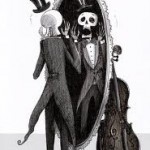



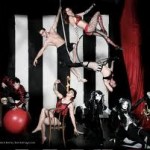
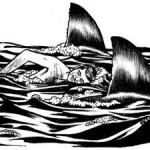
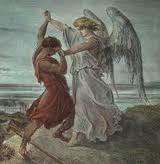
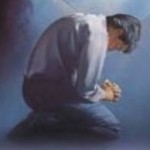

Latest Comments